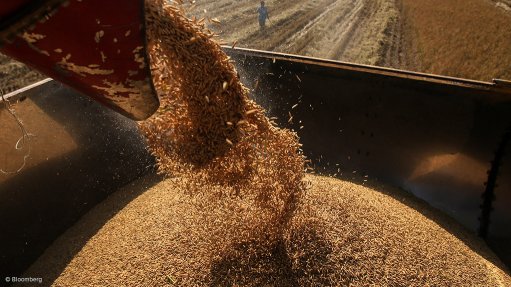
Photo by: Bloomberg
Four engineers from Kenya, Tanzania, South Africa and Zambia, have progressed to the final round of the inaugural Africa Prize for Engineering Innovation, hosted by the UK-based Royal Academy of Engineering (RAEng), with support from the Shell Centenary Scholarship Fund, Consolidated Contractors Company, ConocoPhillips and the Mo Ibrahim Foundation.
The Africa Prize encouraged ambitious and talented sub-Saharan African engineers, from all disciplines, to apply their skills to develop scalable solutions to local challenges, highlighting the importance of engineering as an enabler of improved quality of life and economic development.
Following an open, competitive, application process, which saw entries from 15 countries in sub-Saharan Africa, 12 African entrepreneurs were chosen to receive a package of six months of business training and mentoring from the academy.
Subsequent to the period of mentorship, finalists were invited to present at an event which would be held in Cape Town, on June 1, where a winner would be selected to receive £25 000, along with three runners-up, who would be awarded £10 000 each.
A low-cost sustainable water filter system, which could provide clean and safe drinking water and a service that allows African mobile phone users to switch easily between multiple mobile networks, were among the four African innovations selected.
The South African invention – a fence-mounted security system, preventing stock theft and poaching – was created by Ernst Pretorius, while Samuel Wangul and a team from Kenya created Chura, the SIM-card swapping service. This allowed users to swap airtime between carriers or for cash.
Meanwhile, Tanzania’s Dr Askwar Hilonga invented a low-cost sustainable water filtration system, which used bespoke nanofilters to allow communities access to cheap, clean drinking water. “The mentorship programme and training have completely changed the business plan for my innovation. I’ve found new sources of interest-free loans and seed capital, changed the way I see my customers and learnt to communicate with them better. The impact is much greater than I imagined,” he noted.
Zambia was reprented by Musenga Silwawa who, along with a team, created a precision fertiliser applicator to help small-scale farmers work faster and more efficiently.
“The finalists are an exemplar of African engineering innovation with remarkable potential,” Africa Prize judge and Global Women Inventors & Innovators Network CEO Dr Bola Olabisi said, adding that their “revolutionary ideas” would boost the standard of living for many sub-Saharan Africans.